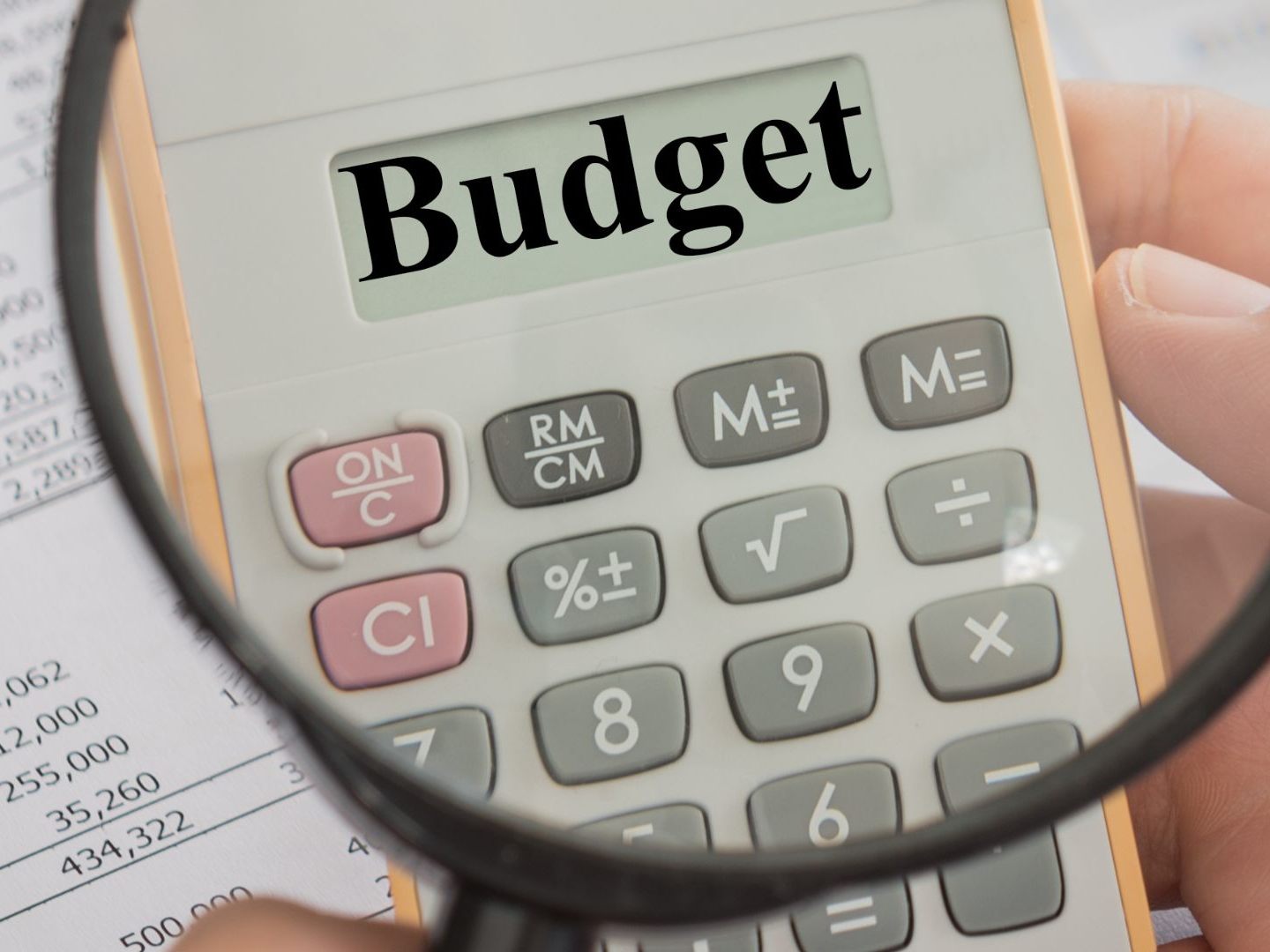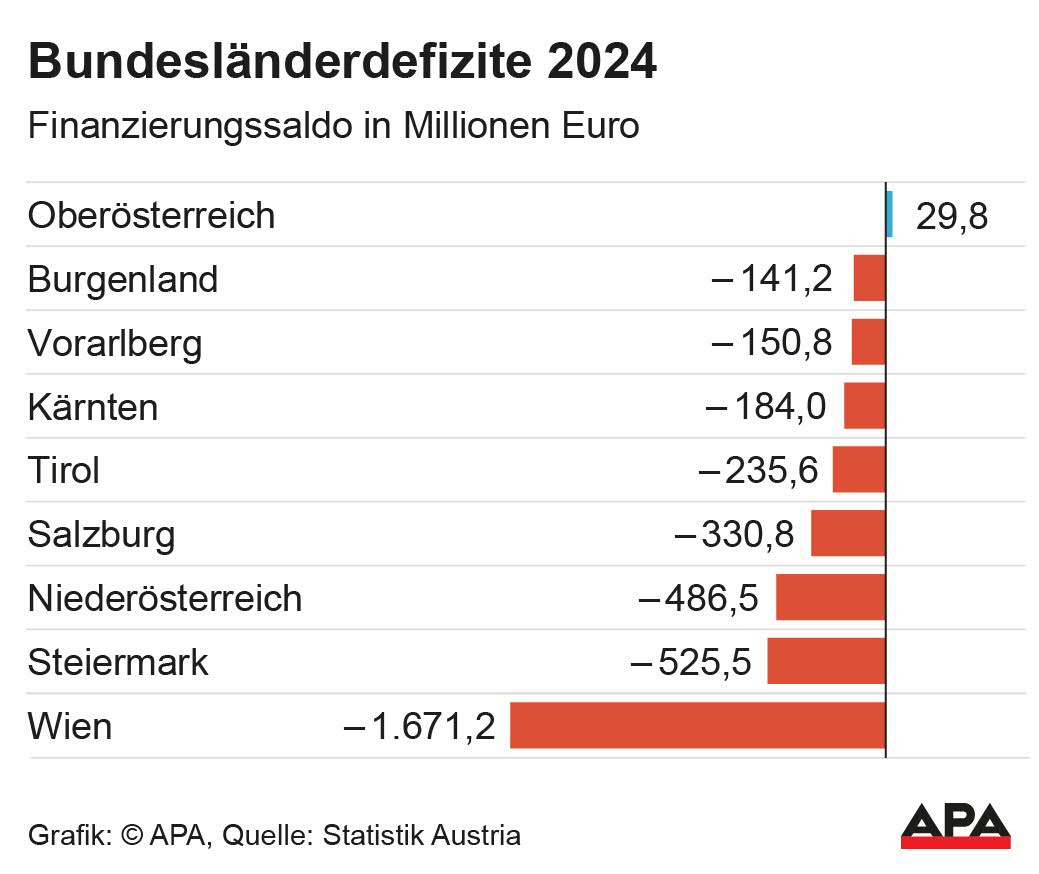Budget Summit: Only One Federal State Had a Positive Balance in 2024

Leading representatives of the federal government, states, and municipalities showed unity after a budget summit on Wednesday and jointly committed to savings. Federal Chancellor Christian Stocker (ÖVP) mentioned a phased plan after the meeting to stabilize state finances in the long term. The primary goal is to reduce the deficit to three percent and thus achieve the Maastricht target. In the long term, the aim is generally for a "lean state."
Further Meetings to Follow After Budget Summit
It was only an initial exchange with representatives of the states, Stocker emphasized. Further meetings with representatives of the Conference of State Governors, the Association of Cities, and the Association of Municipalities are to follow. The government also wants to include social partners and social insurance in the consultations. In view of the recent and "surprising" figures, a "national effort" is needed to reduce the national deficit to one to two percent in the long term. In the medium term, Stocker aims for structural reforms, such as in the energy sector. Vice Chancellor Andreas Babler (SPÖ) emphasized after the summit at the Federal Chancellery that the previous savings target would be maintained. With the summit, which is to be followed by further meetings, they want to signal "that it is a national challenge that affects us all." At the same time, they want to signal confidence. Finance Minister Markus Marterbauer (SPÖ) spoke of a very difficult task but recalled the time after the banking crisis, which was also mastered.
Budget as a "National Task"
Finance State Secretary Barbara Eibinger-Miedl (ÖVP) also spoke of a major task. The conversation with the representatives of the territorial authorities was very constructive. "We see today as the first start to enter into a further process." Foreign Minister Beate Meinl-Reisinger, as a representative of the NEOS, thanked everyone who is willing to take responsibility. The consolidation of the budget is indeed "a national task." "Willingness and readiness for reform" was once again emphasized by the chairman of the Conference of State Governors, Salzburg's Governor Wilfried Haslauer (ÖVP). "In every crisis, there is also an opportunity to make future-oriented decisions," he said optimistically. Vienna's Mayor and President of the Association of Cities Michael Ludwig (SPÖ) and President of the Association of Municipalities Johannes Pressl (ÖVP) also moved in the same direction and showed willingness to participate.
Ludwig for Budget Talks on Equal Footing
The states are ready to shoulder the difficult budgetary situation together with the federal government, Ludwig had already emphasized before the summit. However, this requires discussions on equal footing, and measures in tax law, for example, must be coordinated. The states are also willing to talk about changes such as savings in the area of bureaucracy. However, it must be avoided that savings "destroy the delicate plant of economic development."
This was certainly too little for the opposition Greens: "Announcing the start of a process is all well and good - but it shows once again that it is especially the states and municipalities that are the least committed," criticized budget spokesperson Jakob Schwarz. What is needed is "a clear, binding commitment from the states to achieve real progress." The FPÖ reacted even more critically. The Freedom Party's General Secretary Christian Hafenecker spoke of a "show summit" with which the government wanted to cover up the budget catastrophe.
Budget consolidation was further complicated by recent figures for the year 2024, as the deficit last year was an astonishingly high 4.7 percent of GDP. This was also due to unexpectedly strong departures in the states. Overall, the debt burden is heavily concentrated on the federal government: Austria's total debt ratio was 81.8 percent of GDP last year. 70.8 percent was attributable to the federal government.
Only Upper Austria with Surplus in 2024
The only state with a positive budget balance in 2024 was Upper Austria (plus 29.8 million euros). The highest deficit in 2024 was in Vienna with 1.67 billion euros (excluding state chambers), followed by Styria (525.5 million) and Lower Austria (486.5). Salzburg had a negative balance of 330.8 million euros, Carinthia 184.0 million, Vorarlberg 150.8, and Burgenland 141.2 million euros.

The Center for Administrative Research (KDZ) pointed out on Wednesday the limited scope of action for municipalities. Many municipalities are already making concrete contributions to consolidation by postponing investments and reducing administrative costs, said KDZ expert Karoline Mitterer in a statement. Further savings, such as increasing fees, charges, and childcare contributions, would inevitably impact the range of services and quality of life in the municipalities and have limits, Mitterer said. Without structural reforms at a higher level, it will hardly be possible to consolidate the municipalities' budgets in the long term on their own.
(APA/Red)
This article has been automatically translated, read the original article here.





